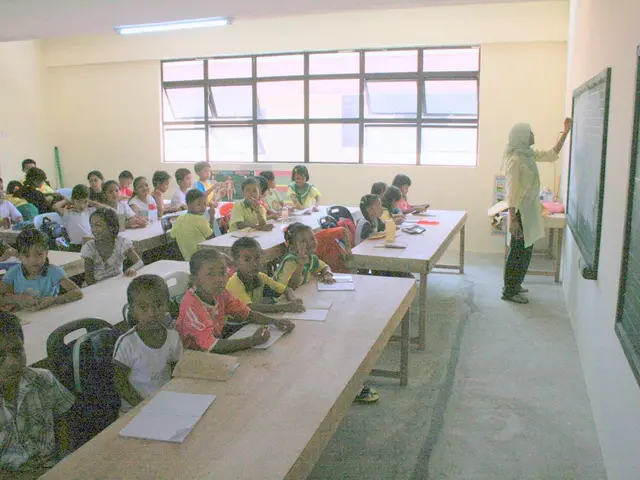Navigating Separations as a Parent: Essential Skills for Maintaining Your Child's Well-being
- Author: Katharina Hoch
- Estimated Reading Time: Approx. 6 minutes
Interview with Mr. Rücker: Coping with Separation and Child Welfare Issues
Children-Involved Divorce: Pivotal Behaviour Guidelines Today - Crossing Borders with Kids: Crucial Guidelines for Parents during Divorce Proceedings (star+)
In today's fast-paced world, separations and divorces can be a common reality for many families. Dr. Rücker, a renowned family therapist, shares his professional insights on the most frequent concerns and questions parents face when dealing with such transitions.
- Separation
- Child Welfare
- Family
Separation: Exploring Its Impact on Children
When parents consider parting ways, they naturally worry about the possible emotional and psychological consequences for their children. Dr. Rücker emphasizes that separation can spark a grieving process in kids, who may experience various emotions such as sadness, confusion, or anger.
The extent and duration of these effects depend significantly on a child's age. Younger children, for instance, may feel anxious about stability and care, while their older counterparts might struggle with loyalty conflicts or changes in schedule[1][5].
Addressing the Question of Separation: A Frank and Empathetic Discussion
Parents often confront the daunting task of explaining separation to their children. Dr. Rücker advises being upfront, honest, and supportive when discussing the matter. Ensuring children understand that both parents continue to love them and that the separation isn't their fault is vital to help them cope[1][5].
Collaborative Co-parenting: Creating a Nurturing Environment for Kids
Working together remains crucial for separated parents seeking to maintain as stable an environment as possible for their children. A well-crafted co-parenting plan should address vital aspects like living arrangements, schedules, communication methods, and shared decisions regarding the child's welfare. Consistent cooperation and flexibility help promote a smoother adjustment process for everyone involved[2][3].
Emotional Support: Empowering Your Child Through Tough Times
Remaining emotionally available and engaged is essential in helping children navigate the emotional turmoil that comes with a parental separation. Providing open communication, maintaining familiar routines, and accessing professional counseling whenever needed can prove invaluable in supporting a child during this challenging period[5].
A trauma-informed approach, one that acknowledges and addresses the emotional needs stemming from the separation, is encouraged to ensure your child's overall well-being[5].
Managing Personal Feelings: Prioritizing Your Child's Needs
Addressing personal emotions toward an ex-partner amidst separation is a challenging task for many parents. Dr. Rücker insists on separating personal feelings from parenting responsibilities, emphasizing the importance of maintaining a calm, loving environment for the sake of the child[3][4].
Legal and Practical Matters: Seeking Expert Guidance
Navigating the legal labyrinth that often accompanies separations can be a daunting task. Obtaining legal advice early on can help define rights, responsibilities, and prioritize the best interests of the child. This might involve determining custody arrangements, creating parenting plans, and updating important legal documents[2][3].
Summarizing Key Considerations: A Roadmap to Smoother Separations
The questions and topics discussed here provide a framework to help parents address their concerns and promote their child's well-being during and after separation. By focusing on emotional impact, open communication, collaborative planning, emotional support, personal feelings, and legal proceedings, parents can navigate this tumultuous period with greater confidence and success[1][2][5].
- To ensure a smoother separation process, it's essential to understand how it will impact the children psychologically and emotionally.
- It's crucial for parents to be honest and supportive when explaining separation to their kids, emphasizing that both parents still love them.
- A well-designed co-parenting plan, including living arrangements, schedules, and communication methods, can create a stable environment for the children.
- Emotional support, such as open communication, maintaining familiar routines, and accessing professional counseling, can prove vital in helping children navigate this challenging period.
- Seeking legal advice early on can help navigate the legal labyrinth, defining rights, responsibilities, and prioritizing the best interests of the child.








